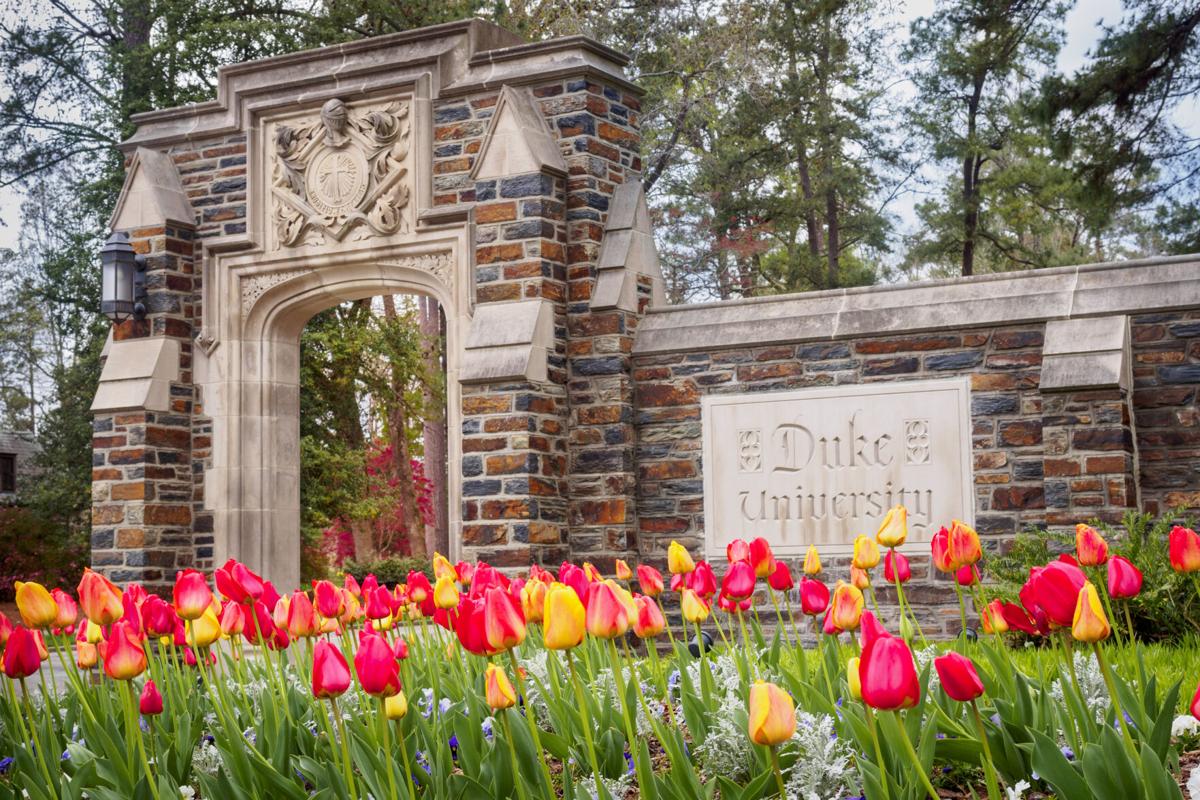
- Details
- By Cherokee Phoenix
For the first time ever, this fall semester Duke’s Trinity College of Arts & Sciences will offer an Indigenous United States language — Cherokee.
The new course recognizes the intertwined history of Duke University and American Indian education. From 1882 to 1887, Trinity College, then in Randolph County, ran the federally funded Cherokee Industrial Indian Boarding School, enrolling 20 children of the Eastern Band of Cherokee Indians.
The boarding school was closed in 1887, and Trinity moved to Durham a few years later. Trinity became Duke University in 1924 with the Duke family endowment.
In recent years, investigative efforts have brought increased attention to the brutal history of Indian boarding schools in the United States and the Americas. These institutions, often led by churches, removed children from their homes in violent attempts to assimilate them into the dominant culture — disrupting kinship networks and facilitating multiple forms of abuse in the process.
Criticized as cultural genocide, boarding schools discouraged and punished American Indian children for speaking their languages — precipitating a major decline in first-language speakers of Indigenous languages in the United States.
“Trinity College started as a religious institute and federal boarding school that specifically had the policy of eliminating Indigenous languages and Indigenous culture – in this case, those of the Cherokee people,” said Courtney Lewis, Crandall Family Associate Professorship Chair in the Department of Cultural Anthropology, enrolled citizen of the Cherokee Nation, and inaugural director of Duke’s Native American Studies Initiative (NASI). “There is a moral and ethical component of teaching and bringing this language back to Duke.”
Students can enroll in Cherokee 1 beginning this fall, and Cherokee 2 in spring, 2025. In addition to these introductory courses, intermediate courses will begin during the 2025–2026 academic year. This means that students in Duke’s Trinity College of Arts & Sciences will be able to satisfy their foreign language requirement with Cherokee.
Broadly speaking, Lewis said, Indigenous languages in the United States are critically endangered. For this reason, offering language courses is one key goal of the Native American Studies Initiative, which officially launched in July 2023.
“For me, it was not a question of whether we were going to start a language course, but rather how fast I could get a language course started at Duke,” Lewis said.
With support from the Office of Global Affairs, the Department of Cultural Anthropology, and the Partnership for Less Commonly Taught Languages, she was able to get that course on the books.
While Cherokee 1 is an online course — a necessity for many less commonly taught languages — students will have the opportunity to meet with the instructor, Gil Jackson, in person a couple of times on campus and during a field trip to Cherokee. Jackson lives in nearby Snowbird.
“(The class is) something I’m so excited about,” said Naomi Goldson T’27, a member of the Lumbee Tribe of North Carolina and the publicity chair for Duke’s Native American/Indigenous Student Alliance (NAISA).
Goldson sees a link between the creation of the course and years of NAISA’s activism to promote the visibility of Native cultures at Duke.
“This is an acknowledgement that there are Native people here, this isn't a dead language, and this isn't a dead culture,” Goldson said.
Lewis said that the course’s instructor, Jackson, grew up as a first-language speaker learning dialects spoken by the Cherokee Nation in Oklahoma and the Eastern Band of Cherokee Indians of western North Carolina.
“He is able to teach a wider range of the Cherokee language, which is really useful to our students since we have both Eastern Band and Cherokee,” Lewis said.
Lewis said that this course is also an opportunity for non-Cherokee and non-Indigenous students to enrich their understanding of the world by learning about life experiences different from their own.
“When you're studying the Cherokee language, you're learning philosophy, science, and cultural practices,” she said, calling this variety of knowledge “the very heart of what a liberal studies education is. It's about exposing ourselves to new ways of thinking across a broad spectrum of subject areas.”
Goldson says that the creation of this course also means that Native students don’t have to shoulder the burden of educating others about Native cultures alone.
“It is so important that allies or people who don't understand Native culture do that work themselves,” she said. “So that's the first step — learning and educating yourself about the culture — and I think that this class is a great way to do that.”
Lewis remembers that the teacher who taught her Cherokee thought that the world might be a better place if everyone spoke it. Anyone who learns Cherokee, she says, is helping to reclaim a language that was “violently repressed.”
“This reclaiming will send reverberations across generations,” Lewis said. “And that's something that very few other language classes can do.”
Help us defend tribal sovereignty.
At Native News Online, our mission is rooted in telling the stories that strengthen sovereignty and uplift Indigenous voices — not just at year’s end, but every single day.
Because of your generosity last year, we were able to keep our reporters on the ground in tribal communities, at national gatherings and in the halls of Congress — covering the issues that matter most to Indian Country: sovereignty, culture, education, health and economic opportunity.
That support sustained us through a tough year in 2025. Now, as we look to the year ahead, we need your help right now to ensure warrior journalism remains strong — reporting that defends tribal sovereignty, amplifies Native truth, and holds power accountable.
 The stakes couldn't be higher. Your support keeps Native voices heard, Native stories told and Native sovereignty defended.
The stakes couldn't be higher. Your support keeps Native voices heard, Native stories told and Native sovereignty defended.
Stand with Warrior Journalism today.
Levi Rickert (Potawatomi), Editor & Publisher
